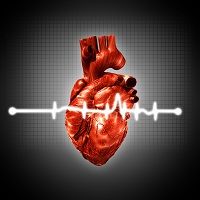Radiofrequency Ablation in Patients with Atrial Fibrillation and Structural Heart Disease
Results from a small trial indicate that radiofrequency ablation can be an effective treatment for atrial fibrillation in patients with atrial septal defects.

Results from a small trial indicate that radiofrequency ablation can be an effective treatment for atrial fibrillation (AF) in patients with atrial septal defects.
Patients with AF often have structural heart disease such as atrial septal defects, but there had been few reports concerning the safety and efficacy of radiofrequency ablation as a treatment for AF in that patient population.
Researchers from Capital Medical University in Beijing thus identified 18 AF patients with unrepaired atrial septal defects between 2008 and 2012, treated their condition with radiofrequency ablation and compared their outcomes with those experienced by a control group of AF patients with no structural heart disease.
The research team, which published its study in the Journal of Interventional Cardiac Electrophysiology, matched 4 control subjects from its hospital databases with each of the 18 trial patients. There were no significant differences between the trial and control groups in terms of age, sex, type of AF, left atrium diameter, left ventricular internal dimension-diastole or ejection fraction. Mean procedural and fluoroscopy times, moreover, were the same for both groups.
After a single procedure and a median follow-up period of 20 months, AF recurred in 44.4% of the patients with atrial septal defects but just 34.7% of those who had no structural heart disease. The difference, however, may have been due to chance (p=0.11).
The mean left atrial diameter was smaller among trial patients whose AF did not recur than in those whose AF did recur. Indeed, univariate Cox proportional hazards analyses found that larger left atrial diameter was significantly associated with recurrence, (hazard ratio, 1.059; 95% confidence interval [CI], 1.002-1.120, p = 0.03).
The study team noted several limitations to its work, including the relatively small size of the trial group, but wrote that the results of the study provided valuable information about the likely results of radiofrequency ablation on a relatively common type of patient.
“These results,” the authors wrote, “indicate that in patients with AF and an atrial septal defect amenable to percutaneous closure, a staged approach with radiofrequency ablation of AF preceding closure is a rational strategy.”
The new study from Beijing comes just a few months after researchers mined a large German registry for data about the safety of using ablation on AF patients with other types of structural heart disease.
That paper, which appeared in the Journal of Cardiovascular Electrophysiology, included 6,211 patients who were divided into 4 groups based upon their heart problems: no structural heart disease (69.4%), hypertensive heart disease (HHD) (12.0%), coronary artery disease (15.1%), and cardiomyopathy (3.6%).
In univariate analysis, patients with HHD had an overall complication rate of 7.28%, whereas patients without a structural heart disease had a significantly lower rate of 6.01% (P < 0.01).
Multivariate analysis revealed that HHD was an independent predictor of severe, nonfatal complications and death (adjusted odds ratio, 1.97; 95% CI, 1.02—3.83, p=0.0442). Hazards associated with other types of structural heart disease did not reach the level of statistical significance.
“In general, ablation of AF has a low number of severe complications,” wrote the authors of the German study, who also believe ablation should be considered for patients with structural heart disease, though they noted that, “The influence of HHD on the complication rate should be considered in patient selection.”